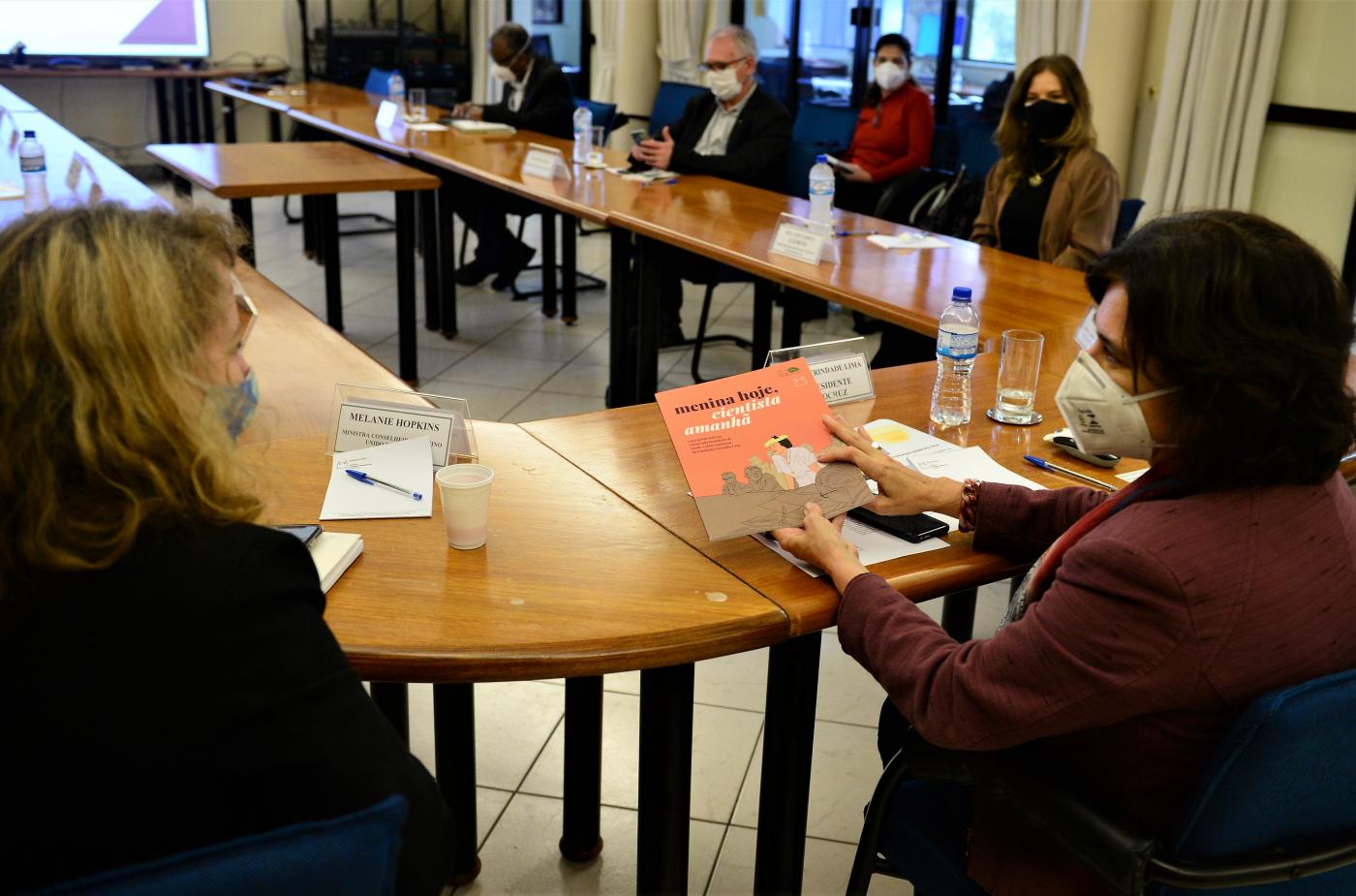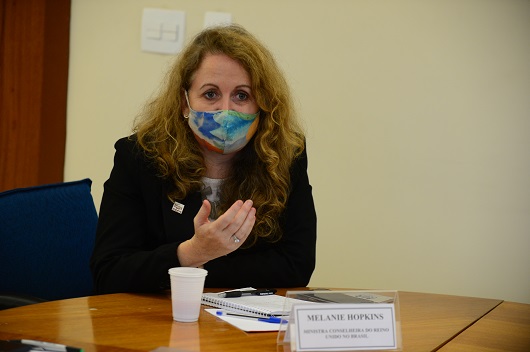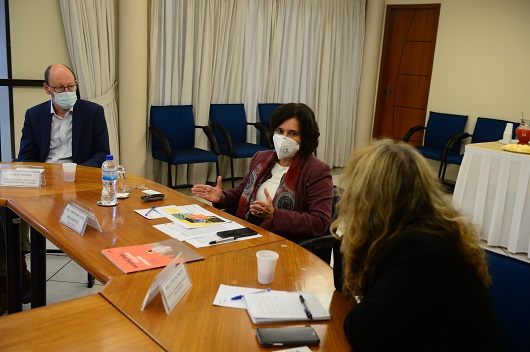In visit, British minister offers to expand partnership with Fiocruz
17/08/2021
Cristina Azevedo (Fiocruz News Agency)
The British government wants to expand its scientific partnership with Fiocruz, especially in fields such as genomic sequencing, declared the minister counsellor of the British Embassy in Brazil, Melanie Hopkins, during a meeting with the president Nísia Trindade Lima, this Thursday (August, 12th). A month in office, the minister visited the Foundation accompanied by the consul general in Rio de Janeiro, Simon Wood.
British minister Melanie Hopkins during meeting with Nisia Trindade Lima (Photos: Peter Ilicciev)
"It was very important to come here and sit down face-to-face with these scientists. The first steps in the partnership [on the vaccine] were taken during the estrangement period, in what was historic work. I am happy to know that we will continue to work together", said Melanie Hopkins, showing a willingness to establish partnerships with the Foundation's various units around the country. "The fact that this is my first external event in Brazil demonstrates the importance of Fiocruz."
With the other members of the Foundation's help, Nísia presented an overview of how Fiocruz has been acting in the fight against the pandemic, as well as its activities from Antarctica to Africa, including its educational role. She highlighted the challenges exacerbated by the pandemic and expressed concern about the asymmetry in access to the vaccine in the world. "It makes me proud when they say we have produced a cheaper vaccine. We have been talking to the World Health Organization so that, once the critical phase is over in Brazil, we can make a contribution at an international level", said the Fiocruz president.
Melanie Hopkins at Fiocruz
At the meeting, Marilda Siqueira highlighted the contribution of British institutions and researchers in the development of the Respiratory Virus and Measles Laboratory, headed by her, at the Oswaldo Cruz Institute (IOC, acronym in Portuguese). Part of the Genomics Network at Fiocruz, the unit receives samples from other countries, such as Haiti and Honduras, and also participates in the foreign researchers training.
In the pandemic midst, one of the areas in which the partnership between the Foundation and the UK is to be expanded is in genome sequencing, through the New Variant Assessment Platform (NVAP). The UK government platform seeks to support other countries in strengthening their genome sequencing capacity by building on existing infrastructure or by performing sequencing and sample analysis in the UK.
Sue Ann Costa Clemens, the coordinator of the AstraZeneca/Oxford vaccine research centers in Brazil, said that bringing the study on the COVID-19 immunizer to Brazil was "the spark" that enabled a process that led to production and technology transfer to Fiocruz. Mauricio Zuma, director of the Institute of Technology in Immunobiologicals (Bio-Manguinhos), in turn, pointed out that the vaccine developed by Oxford University was chosen for being the one that proved to be most compatible with the Foundation's capabilities and facilities, besides offering the possibility of technology transfer and constituting a platform that can be used for the production of other vaccines.
Nisia with minister Melanie Hopkins and consul general Simon Wood
Cristiani Vieira Machado, vice-president of Education, Information, and Communication (VPEIC), recalled the programs for health professionals' role. On COVID-19 alone, ten courses have been developed that have trained more than 370,000 people. David Brown, visiting researcher and former director of the UK's Public Health Virus Reference Division; Valber Frutuoso, institutional relations advisor to the Presidency; and Ilka Vilardo, advisor to the Fiocruz Global Health Center(CRIS/Fiocruz), also participated in the meeting.
The event also included a visit to the Vaccine Technology Complex (CTV), where the minister and the consul saw the production of the COVID-19 vaccine, accompanied by Carla França, advisor to the Vice-Directorate of Production; and by Daniel Godoy, staff at Bio-Manguinhos chief.
"The partnership with Oxford is important for Brazil, but it is also for the UK. It is a pleasure to see the areas of cooperation and that we can expand them with NVAP", the minister said. "We have always said that Brazil has the capacity to be a superpower in science and we are with you on that."


